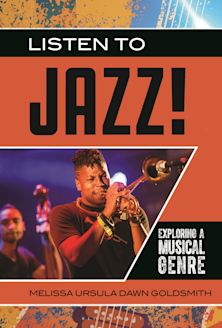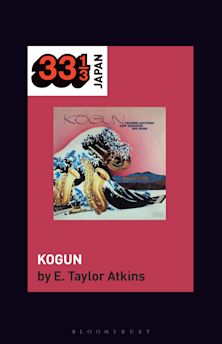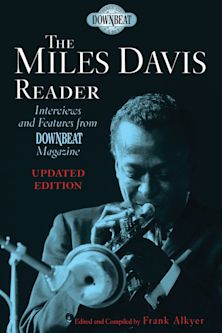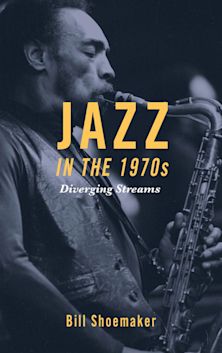- Home
- ACADEMIC
- Music & Sound Studies
- Jazz
- Where the Dark and the Light Folks Meet
Where the Dark and the Light Folks Meet
Race and the Mythology, Politics, and Business of Jazz
Where the Dark and the Light Folks Meet
Race and the Mythology, Politics, and Business of Jazz
- Delivery and returns info
-
Free US delivery on orders $35 or over
You must sign in to add this item to your wishlist. Please sign in or create an account
Description
Where the Dark and the Light Folks Meet tackles a controversial question: Is jazz the product of an insulated African-American environment, shut off from the rest of society by strictures of segregation and discrimination, or is it more properly understood as the juncture of a wide variety of influences under the broader umbrella of American culture? This book does not question that jazz was created and largely driven by African Americans, but rather posits that black culture has been more open to outside influences than most commentators are likely to admit. The majority of jazz writers, past and present, have embraced an exclusionary viewpoint.
Where the Dark and the Light Folks Meet begins by looking at many of these writers, from the birth of jazz history up to the present day, to see how and why their views have strayed from the historical record. This book challenges many widely held beliefs regarding the history and nature of jazz in an attempt to free jazz of the socio-political baggage that has so encumbered it. The result is a truer appreciation of the music and a greater understanding of the positive influence racial interaction and jazz music have had on each other.
Product details
| Published | Oct 01 2014 |
|---|---|
| Format | Paperback |
| Edition | 1st |
| Extent | 288 |
| ISBN | 9781442243545 |
| Imprint | Scarecrow Press |
| Dimensions | 9 x 6 inches |
| Series | Studies in Jazz |
| Publisher | Bloomsbury Publishing |
About the contributors
Reviews
-
What Randy Sandke has to say in these pages is bound to make you think anew about jazz-agree with him or not. And he speaks from the heart.
Dan Morgenstern, director, Institute of Jazz Studies, Rutgers University; dean of jazz historians; editor, Studies in Jazz series
-
With a much-needed blend of careful research, common sense, passion, insight, and (at times) indignation, Randy Sandke sets the record straight about how the divisive racial mythology of jazz's origins and nature came to be. One hopes that Where the Dark and the Light Folks Meet will do as much good as it deserves to do.
Larry Kart, author of Jazz In Search of Itself
-
In this compelling adduction of new evidence and analysis, Sandke forensically dissects jazz history and shows it, to paraphrase Ralph Ellison, to be 'ever a tall tale told by inattentive idealists' where myth and legend frequently obscure a less prosaic truth. It is a book that needed to be written and seems sure to inspire countless lines of fresh academic enquiry.
Stuart Nicholson, author of Is Jazz Dead?: Or has It Moved to a New Address
-
Randy Sandke's research and documentation are thorough. His insights and opinions are forthright. His book will infuriate its targets, those in the music world who place myth, race, nationality, sociology, politics and commerce above music itself. Everyone else will find it revealing, thought-provoking and helpful.
Doug Ramsey, author of Jazz Matters: Reflections on the Music and Some of its Makers
-
Genuine research involves the discovery of unknown or neglected materials and their analysis in ways that yield fresh insights. Randy Sandke's book meets this standard and therefore warrants careful attention. It is neither the first nor last book on the subject, but an important and serious contribution to our deeper understanding of the music we love.
S. Frederick Starr, author of Red and Hot: The Fate of Jazz in the Soviet Union, 1917-91, and Louis Moreau Gottschalk
-
Randy Sandke brings his wide range of experience as a jazz musician and composer to a discussion of jazz history and jazz criticism that is must reading for anyone interested in the elements-and the people-that have created the canons and contradictions of this endlessly fascinating art form.
George Avakian, record producer and jazz historian

ONLINE RESOURCES
Bloomsbury Collections
This book is available on Bloomsbury Collections where your library has access.



































